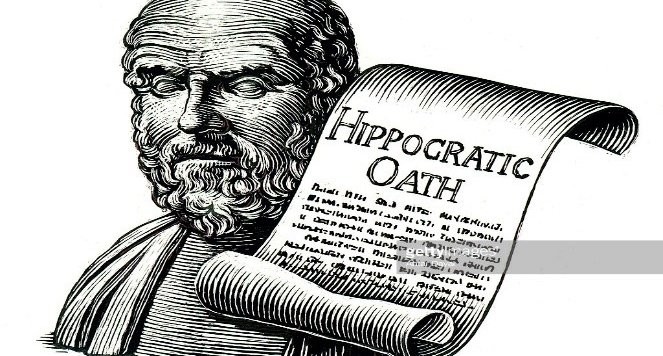
The Educator’s Hippocratic Oath: A Las Vegas Tragedy Inspired Reflection
As I traveled the country inspiring and facilitating professional development for school and district leaders, and my recent viewing of the response by medical professionals to the Las Vegas shooting, I thought of the parallels between the medical profession and our work as K-12 educators. As I further explored these Parallels, I realize that there are several, all of which have an impact on humanity. This includes the fact that the decisions of medical doctors and educators (principals, assistant principals, and teachers) can change and even save lives.
One stark difference between these two noble professions is the fact that medical doctors take an oath and educators do not. Although the arena of medicine and many medical school’s exit practices have seen less of a practice of the taking of the Oath; the principles on which the medical practice and Hippocratic Oath is grounded still holds true.
By its definition and purpose, the interpretation of the Hippocratic Oath gives one the impression that those who swear to it (medical practitioners) would give up everything and go to great lengths to save and support those in their charge and entrusted to their care.
What would be a Hippocratic Oath for school leaders and teachers? What are the absolutes? As an educator in the K-12 arena, what extent and lengths would you go to save those entrusted into your care (children?) Should such an oath be more of a social contract, or legally and morally binding agreement with a strong obligatory clause? Would such a document change your practice as school leaders?
Hippocrates, the father of modern medicine had significant influence on the creation of the Hippocratic Oath for medicine. I believe that Horace Mann, the “father” of American education could have created a similar set of guiding principles for those in the education arena. Although Horace Mann has made significant contributions to this noble pursuit of public education; when I think of the “father” of contemporary education, I am biased and influenced by John Dewey; the prolific and progressive philosopher, psychologist, and educational reformer of the late 19thC and early 20thC. He is the “father” of contemporary education. Should he be the author and architect of the proposed Hippocratic Oath for educators, what would it read? I can imagine it being anchored in an orientation that embodies a psychological and sociological approach; an oath that is socially, racially, and culturally conscious, with a progressive and pragmatic approach, which balances a fair dose of empathy and accountability.
If school leaders and teachers in the K-12 arena are to have an oath, it would encourage them to embrace, commit and sign the dotted line to the following 7 points:
1. Be data driven; but Humanize your Data. This means that you understand that at the end of every data point, there is a person.
2. Lead with love and each day that you travel to your school, you will be more excited than the previous day. Following Confucius' adage, "Choose a job that you love, and you will never have to work a day in your life.”
3. Always remember that you are not bigger than your purpose. You are serving in your role because someone saw something in you; hundreds of children and adults are depending on you. Do not blow it!
4. Lead with Empathy and Compassion. Your work starts with your willingness to understand the suffering/situation of every student and teacher in your building (Empathy); your actions should be anchored in doing everything to alleviate their issues, pain, failures, suffering (Compassion-the verb alignment of empathy.)
5. Never stop smiling; never stop learning. Someone asked me recently; why does it seem as if I am always having a "good" day? My response; I have not had a "bad" day in twenty years. Perspective! You are a school leader! You are blessed! Do not take it for granted by complaining about non-important interferences.
6. Be humble in leadership. Understand whom you serve and why you were called to serve them. In doing so, always connect your decisions to their culture, values, belief, and life as they know it. Your position is higher than your degrees, salary, egos, and pride. Your position should be their light that guides them through the tunnel. They should see it in your actions.
7. Lead for your Legacy! Every decision that you make, ask yourselves; what will my legacy be? Whether you have led for 2 weeks or 20 years, you are leaving a legacy. Your daily actions and people's perceptions of your leadership moves and decisions will dictate your legacy.
Let’s continue to be the best HOPE dealers as we lead with empathy and compassion!!!!!!!!
Principal at Metz Middle School
6yInspiring, and true. I truly appreciate your work, and your courage to be you.
Teacher / Coach & Assistant Athletic Director at DeSana Middle School
6yAbsolutely love and agree with this article. Thank you for sharing! I especially like the second point in the article about finding your passion and you will never have to work a day in your life. I used to tell my wife in the first few years of teaching that I was leaving each morning for "fun". I still feel the same way 19 years later.